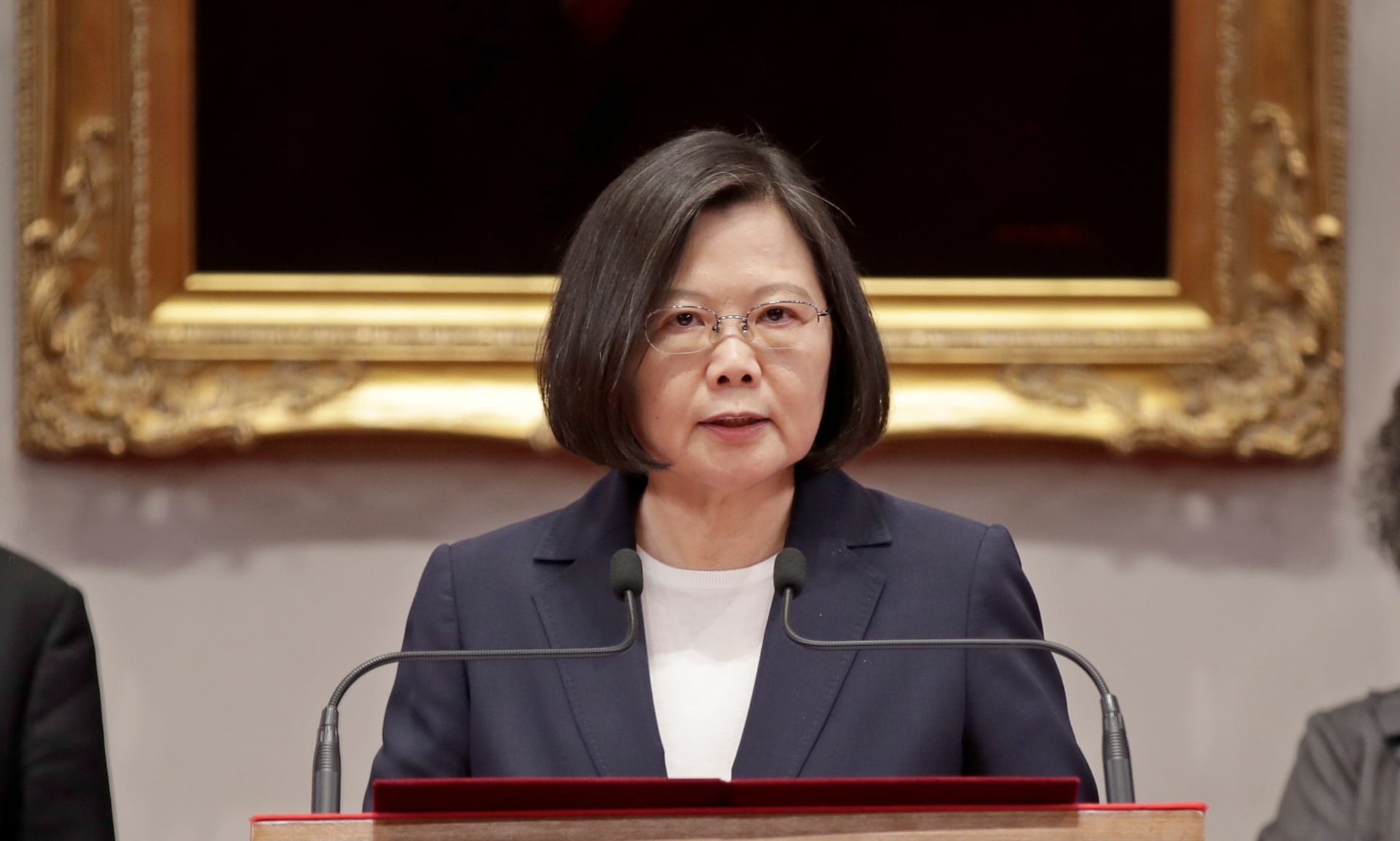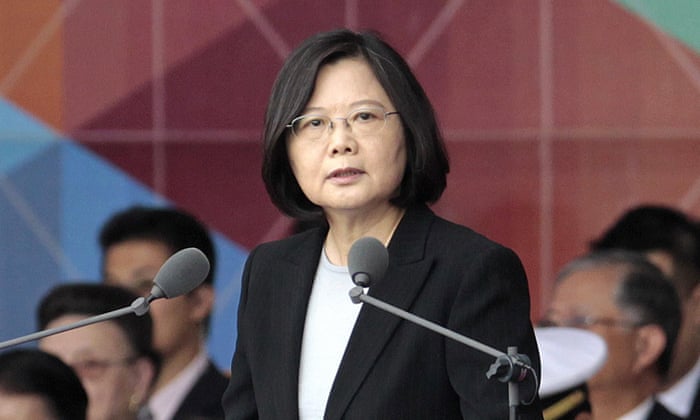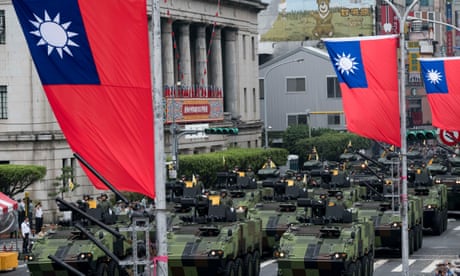AFP in Taipei
Taiwan’s president, Tsai Ing-wen, accused China of ‘dollar diplomacy’ at a press conference in Taipei on Thursday.
The Taiwanese president, Tsai Ing-wen, has lashed out at China after Burkina Faso broke diplomatic ties with the island, the second country to do so this month.
The move, which has been welcomed by China, came after the Dominican Republic switched recognition to Beijing earlier this month, leaving Taiwan with only 18 diplomatic allies around the world.
Although it was not immediately clear if Burkina Faso and China would establish diplomatic relations, officials in Taipei said it was only a matter of time and blamed Beijing for the setback.
“China’s crude behaviours to undermine our sovereignty have already challenged the bottom line of Taiwan’s society. We will not tolerate it any more,” President Tsai told reporters without elaborating.
Tsai accused Beijing of using “dollar diplomacy” to lure away the island’s allies.
She added that Beijing’s moves reflected “insecurity and lack of confidence... The more crude their behaviour, the more it sparks international repulsion”.
“China’s crude behaviours to undermine our sovereignty have already challenged the bottom line of Taiwan’s society. We will not tolerate it any more,” President Tsai told reporters without elaborating.
Tsai accused Beijing of using “dollar diplomacy” to lure away the island’s allies.
She added that Beijing’s moves reflected “insecurity and lack of confidence... The more crude their behaviour, the more it sparks international repulsion”.
Relations between Taiwan and China have worsened since Beijing-sceptic Tsai came to power as her government refuses to acknowledge that Taiwan is part of “one China”.
China still considers Taiwan to be a renegade province to be reunified, by force if necessary, even though they split in 1949 after a civil war.
The two have been engaged for years in a diplomatic tug-of-war in developing countries.
China still considers Taiwan to be a renegade province to be reunified, by force if necessary, even though they split in 1949 after a civil war.
The two have been engaged for years in a diplomatic tug-of-war in developing countries.
Economic support and other aid are often used as bargaining chips for diplomatic recognition.
Taiwan can now claim only one ally in Africa – eSwatini (formerly Swaziland).
Taiwan can now claim only one ally in Africa – eSwatini (formerly Swaziland).
Burkina Faso was the fourth country to cut ties with Taipei since Tsai took office two years ago.
The Dominican Republic announced on 1 May the termination of its 77-year diplomatic relationship with Taiwan to recognise China.
The small African nation of Sao Tome switched recognition to Beijing in late 2016, followed by Panama last June.
Burkina Faso said earlier on Thursday that it was severing diplomatic ties with Taiwan for the second time.
The Dominican Republic announced on 1 May the termination of its 77-year diplomatic relationship with Taiwan to recognise China.
The small African nation of Sao Tome switched recognition to Beijing in late 2016, followed by Panama last June.
Burkina Faso said earlier on Thursday that it was severing diplomatic ties with Taiwan for the second time.
The country first terminated relations with Taipei in 1973 but restored them in 1994.
“But, today, changes in the world, the current socio-economic challenges facing our country and our region call on us to reconsider our position,” said its foreign minister, Alpha Barry.
The decision prompted Taiwan’s foreign minister, Joseph Wu, to tender his resignation on Thursday, pending Tsai’s approval.
“But, today, changes in the world, the current socio-economic challenges facing our country and our region call on us to reconsider our position,” said its foreign minister, Alpha Barry.
The decision prompted Taiwan’s foreign minister, Joseph Wu, to tender his resignation on Thursday, pending Tsai’s approval.
Wu said that Taipei was cutting relations with Burkina Faso “to safeguard our sovereignty and dignity” and halting bilateral aid and cooperation programmes.
According to some reports, last year Beijing allegedly offered $50bn to Burkina Faso to establish relations but the landlocked west African state turned it down.
Tsai dropped a plan to visit the country in April during her first trip to Africa since taking office after its president was unable to receive her, citing scheduling conflicts.
Wu said Taipei already felt “a little unease” at that time.
Tsai’s government is trying to enhance Taiwan’s international profile but faces a concerted attempt by Beijing to shrink its space on global platforms.
According to some reports, last year Beijing allegedly offered $50bn to Burkina Faso to establish relations but the landlocked west African state turned it down.
Tsai dropped a plan to visit the country in April during her first trip to Africa since taking office after its president was unable to receive her, citing scheduling conflicts.
Wu said Taipei already felt “a little unease” at that time.
Tsai’s government is trying to enhance Taiwan’s international profile but faces a concerted attempt by Beijing to shrink its space on global platforms.
Beijing has stepped up pressure on her government by blocking Taiwan from attending a growing list of international events and staging a string of military drills around the island.


